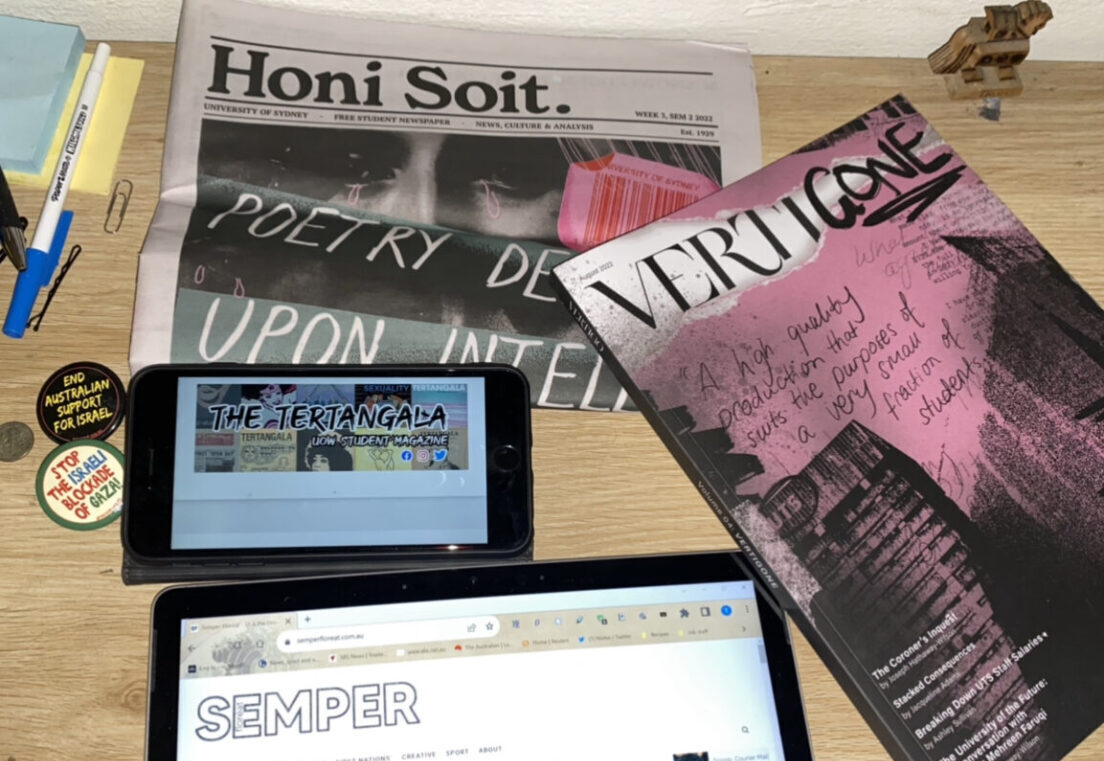*The Tertangala does not endorse shoplifting or any crime in that matter. However, we understand that many will have to do what they have to do to survive. This editorial is not reflective of the Wollongong Undergraduate Students Association (WUSA) or the University of Wollongong.
The outrage against our University of Queensland counterpart for their shoplifting guide should be redirected to the bigger issue which currently affects each and everyone of us.
Published online as well as in the physical edition of the newspaper, Semper Floreat has come under fire for the controversial guide on how to successfully shoplift. “Frifting” as the guide refers to, while illegal, is something some people may need to do in order to get by.
We are currently living in extraordinary times. Exacerbated by the invasion of Ukraine, climate change and the COVID-19 pandemic, the cost of living is eating away at the everyday Australians who are forced into difficult positions. This outrage we have seen towards our UQ counterparts almost mirrors what was seen when La Trobe University’s Rabelais published an almost identical guide on shoplifting in their July 1995 edition of their newspaper. Fueled by The Retailer Traders Association and condemnation by the media the editors of Rabelais were met with threats of legal prosecution, with the RTA arguing the article is in breach of the Victorian Classification of Film and Publications Act 1990 (The four editors of the newspaper were eventually charged and faced potential prison time, however charges were eventually dropped in 1999). While Semper’s guide has not resulted in similar outcomes by Rabelais (hopefully it never will), it merely mirrors what was seen by their La Trobe counterparts, from the condemnation by the corporate retailers associations, to the outrage by mainstream media from the likes of the Courier Mail to Fox News.
The outrage that corporations such as Woolworths and 7-Eleven (which the guide states to target and never family run businesses) will lose profits from ‘frifting’ is telling of how society is operating. The system and individuals who continue to uphold these systems, who continue to uphold these values that profit off basic human needs should be some of the things people should be outraged at, not at a guide on how to shoplift. While food security is not measured consistently in Australia, it is estimated that around 4% to 13% of the general population have faced food insecurity, while 22% to 32% of the Aboriginal and Torres Strait Islander population facing it greater (this is depending on the location of Aboriginal and Torres Strait Islander communities). These statistics are likely to go up with food prices likely to go up by 5.5% by next year. Single parents, people who live in remote communities as well as coming from a culturally and linguistically diverse community, which all come with their own social barriers, are also at most risk of food insecurity. In Europe, harsh cold winters which are exacerbated by climate change will only add pressure to those suffering under the cost of living crisis. While we are lucky to not be in the same predicament as Europe, there is no doubt life will become harder for those who are doing it tough. While corporations such as Woolworths and Wesfarmers rake in millions in profits from the sale of clothes, food and water, many will continue to struggle to meet these basic needs.
An argument we have seen from time to time whenever the idea of shoplifting is endorsed, is that it is an immoral act to do. While yes, taking something which is not yours is wrong, the commodification of food and water should sit on a higher level of moral evil. Corporate losses should not be an excuse to shame someone for trying to get by. The shame should be put upon these corporations and the system that upholds the commodification of basic needs. People should not have to go hungry or stay cold because a price tag is in the way. Unless there is some universal method of solving these issues, people will have to do what they have to in order to survive.
Before ending this editorial, we would also like to address the breach of editorial independence by the University of Queensland Union. According to the UQU Regulations, the President can intervene in any publication if any legal advice is given if published material is deemed discriminatory or exposes UQU to any legal action. However, the Tertangala understands legal advice was not given to UQU President Emily Searle. The motion to pull all physical copies of the newspaper which contain the guide as well as the forced apology by editor Billie Kugleman (which can be found here) is ultimately something the Tertangala cannot agree with. We are urging the incoming UQU council, whoever it may be, to respect the independence of Semper.
The Tertangala stands in solidarity with Semper Floreat and supports their freedom to publish content that serves the purpose of disrupting the status quo.
The shoplifting guide can still be found on Semper Floreat’s website.


